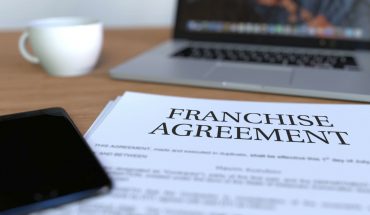Things to consider in the conveyancing process
- 21 Sep 2020
- Download PDF
The purchase of a home is arguably one of the most important purchases of your life. At RRR Lawyers we are able to assist you in the entire process of the purchase from the pre-contractual signature to the legal procedures required to transfer the ownership of the property.
The highly technical process of transferring the Title in the property (whether it is the purchase or sale of the property) is known as conveyancing.
A cheap conveyancing company will simply process the documents for you and will not have the expertise to give you pre-contractual advice in relation to the section 32 statement before the contract is signed, advise you about restrictions which may exist in relation to future development, construction of additional dwellings on the block and such other restrictions that may be imposed on the title.
With over 27 years of experience acting for purchasers as well as vendors, RRR Lawyers are able to provide advice over all aspects of the legal requirements in the transfer of Title,
including the purchase or sale of the property, whether private or through an auction, with or without the involvement of a real-estate agent.
It may be that you are interested to develop your own property, subdivide or consolidate land or it may be that you may wish to transfer your home or sell or gift all or part of a property to a spouse, associate or relative. At RRR Lawyers, we not only have the capacity, but far more importantly, we have the proven experience required to be able assist you in every single one of these matters. This experience and qualification can only be provided from an experienced and considerate Legal Practitioner. With RRR Lawyers you can rest assured that all of the legal requirements of what is either the most important or at least a highly significant investment of your life or business are satisfied.
Matters to Consider in Conveyancing:
Is the property being sold at auction or privately?
Auctions have their own particular legal considerations involving the representations made by the bidder at the auction itself as well as the signature of the successful bidder in the postauction conference with the vendor.
Due to the hidden complexities of an auction, it is highly recommended that both a potential vendor and purchaser seek competent legal advice before any commitments are made.
Another key consideration regarding auctions is the certainty of finances to meet the auction bid as well as pay the deposit amount. It should be noted that there is no ‘cooling off’ period
at an auction; once a representation to purchase is made, the bidder may not reconsider their decision.
In contrast, a purchase in a private sale generally allows for a Statutory ‘cooling off’ period of three days. During this three-day period, the purchaser is indulged with the opportunity to reevaluate their commitment and withdraw, if chosen, without penalty or forfeiture of the deposit amount.
Is the property being financed by a Bank or other lender?
As a potential purchaser for a property, it is likely that you would require a Bank Mortgage to finance the property. If this is the case, then it is highly advisable to seek for the Contract of
Sale to include a ‘subject to finance’ Clause to ensure that any potential difficulties with securing the funds for the purchase are accounted for.
In this regard, a common misunderstanding is that although the relevant lender may provide a ‘pre-approval’, by its very name this preliminary assessment by the Bank is not final and is
therefore subject to change at the Bank’s discretion. For example, if the Bank evaluates the property following the pre-approval assessment and is advised that the purchase price is excessive, they may form the view that their risk in providing the funds originally ‘approved’ is too much of a liability.
The Bank would therefore be within their rights to review their offer and reduce the amount they are willing to loan. In such a situation, if the Contract does not have a ‘subject to finance’
Clause, as the purchaser, you have a legal obligation to continue with the purchase the property irrespective of your inability to secure adequate funding.
A failure by the purchaser to continue with the obligations of purchase under the Contract of Sale would result in the forfeiture of the deposit amounts (often in the tens of thousands) with
the additional risk of being sued for further damages pursuant to the Contract.
What is the Cost of Conveyancing?
Apart from the significant costs related with the purchase of the property itself, the costs associated with the formalities of the transfer of Title of the property is the next most significant expense to be considered. In regard to the costs of conveyancing, the expression “if you pay peanuts, you get monkeys” is especially apt.
It should be quite evident that given the size of the investment in the purchase of the property, it is unwise to engage the services of a conveyancing practitioner purely because they are the cheapest. Unfortunately, many problems in conveyancing arise because vendors and purchasers alike often overlook the fact that experience and competence matters.
The best way to approach the issue of choosing the right firm or conveyancing business is to assess your value for money. Many solicitors and conveyancing companies offer fixed price conveyancing. But make sure you know what you are getting for the fixed cost. It may be that you are already aware of your legal rights and obligations and you may only require the basic services of having the forms filled in and lodged. Alternatively, you may require proper legal advice before you sign anything and the assurance of reliability should any unforeseen difficulties arise. When entering into a contract with the conveyancer or Legal Practitioner, you should know what services are included.
What if something goes wrong?
An important consideration is whether there are any extra charges involved to rectify the problems.
For instance, what if the conveyancer is required to chase up the vendor because the bungalow in the back yard of the property does not have a building permit or if there is a preexisting dispute with rates or boundaries? If the conveyancer or legal practitioner does not offer a fixed price service, make sure you know how they will itemize their fees and the scale of their costs so that you can know that your hard-earned money is actually being used and not simply smoked away.
What protection do they have if they make a mistake?
Obviously, the first step is that you should make sure that the person who is responsible knows what they are doing. Unfortunately, the realities of life teach that mistakes happen.
Solicitors are required by law to have insurance which covers faulty work. In addition there is a fidelity fund that covers situations where the insurance does not apply.
Conveyancers, in contrast, are often just businesses; make sure that you check the insurance protection available to protect yourself against any mistakes made by conveyancing companies.
Have you considered other legal issues surrounding the purchase of the property?
Some food for thought on common issues that should be considered includes:
- whether the purchase affects your pension; whether you should change your will; whether there are family law implications as a result of the purchase?
- Are there tax implications? For instance, what will be the effect on the ‘Capital Gains’ tax? The Capital Gains tax is a tax payable on the capital gain made in the sale of investment properties. It is calculated on the basis of the profit earned in the final sale price compared with the original purchase price.
- Are there any problems with the title or legal issues that you need to consider?
- If the property is to be used as an investment, besides the tax implications, including negative gearing, are there any issues you need to deal with in relation to a tenancy agreement?
- Will you be in a position to cover your mortgage obligations?
- Is the housing loan fixed (capped) or variable, and which would be better for your situation?
- Is the purchase part of a long term financial strategy that maximizes your future financial stability?
- What is the reasonable outlook for interest rates and the price of housing?
All of these issues can only be dealt by a competent lawyer and/or financial advisor. Conveyancers are often only restricted to filling out the forms.
If you have an experienced lawyer, they would be able to advise in all of these matters. RRR Lawyers, with over 27 years of practice, are more than competent to meet your needs and address any unforeseen developments as they surface. Our Mr Raniga has been a solicitor in Victoria since 1984 and he is ably supported by his legal team in RRR Lawyers. Furthermore, his experience in conveyancing has enabled him to develop an extensive network with competent and professional financial advisors and related professionals who would be able to supplement
If you do require our services in the future please note that we will provide a personal, professional and cost-effective service and an estimation of our legal fees will be provided in writing to you at the time of engagement.
If you or someone you know wants more information or needs help or advice, please contact us on 03 9387 2424 or email info@rrrlawyers.com.au today and see how we can help.
Posted in: Building & Construction Law,
Following the breakdown of a marriage or de facto relationship, i...
This might seem a basic question but so many people simply do not...
Unfair dismissal matters can be complex and frustrating for both ...
The purchase of a home is arguably one of the most important purc...
There have been updates in the law regarding disclosure requireme...
When renting business related property it is important for both L...
Maintaining cash flow is essential to any business. Writing off d...
We often receive instructions after family court orders have been...
In this issue, we wish to introduce and outline an area of law of...
Do you have a friend or relative who has just separated? ...
How to get legal help for a victim of family violence? ...
Most people think that if a person is charged by the Police or Au...
A Power of Attorney is a legal document that gives a trusted pers...
It is often stated that the purchase of a house is the largest in...
The Fair Work Commission has powers to make anti-bullying orders ...
Introduction Mr. Prakash Raniga and his team have acted...
Buying a franchise is a good way to share in the success of a wel...
There has been an upswing in media reportage of domestic violence...
The team at RRR Lawyers specialise in assisting those who are pur...
You are required to enter into a major domestic building contract...
Things you need to know BEFORE the auction day Buying a...
Relationship difficulties and breakdowns are a sad reality of mod...
While many people are unlikely to nominate estate planning aka �...
Australia is a multi-cultural society, one of the most ethnically...
Body art such as tattooing and piercing has enjoyed popularity ov...
If you are a grandparent and face the sad circumstance of a break...
When starting a legal case, you must ‘serve’ the party agains...
Due to reforms introduced by the Building Legislation Amendment (...
The 2017/2018 Victorian Budget has made substantial changes to la...
The Building Legislation Amendment (Consumer Protection) Act 2016...
It is well known that a Will is a legal document which sets out h...
Social media – Facebook, Instagram, Twitter, Snapchat and the l...
Claims can be made for further provision from a deceased estate i...
Unlike married couples, de facto partners cannot apply for a divo...
GST and Residential Property Transactions The...
It is important for everyone over 18 to have a will to make sure ...
The new Powers of Attorney Act 2014 (Vic) commenced on 1 Septembe...
In one famous case, marriage is described as “the union of a ma...
Many migrants do not have relatives in this country beyond their ...










































